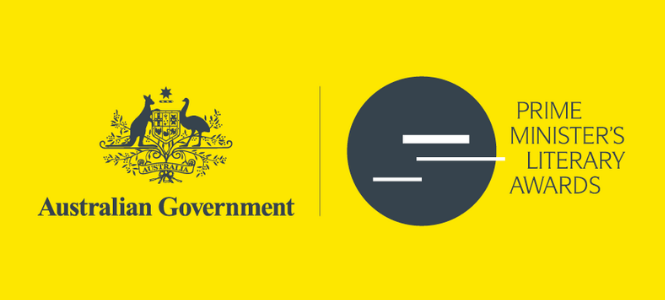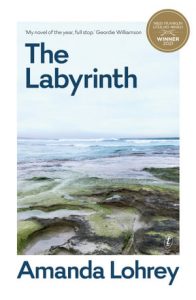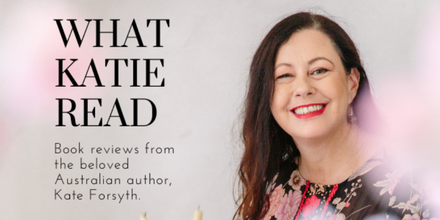
The winners of the Prime Minister’s Literary Awards have just been announced – check them out below!
Fiction

The Labyrinth (Amanda Lohrey, Text)
Non-Fiction

The Stranger Artist: Life at the edge of Kimberley painting (Quentin Sprague, Hardie Grant)
Australian History

People of the River: Lost worlds of early Australia (Grace Karskens, A&U)
Poetry

The Strangest Place: New and selected poems (Stephen Edgar, Black Pepper)
Children’s (Joint Winners)

Fly on the Wall (Remy Lai, Walker Books)

How to Make a Bird (Meg McKinlay, illus by Matt Ottley, Walker Books Australia)
Young Adult

Metal Fish, Falling Snow (Cath Moore, Text)
A writer’s life
We asked nominees for the 2021 Prime Minister’s Literary Awards what are the best things about being a writer/illustrator/poet, and the challenges.
Here’s what they said.
 Dr Amanda Harris, Representing Australian Aboriginal Music and Dance 1930-1970 (Australian history)
Dr Amanda Harris, Representing Australian Aboriginal Music and Dance 1930-1970 (Australian history)
One of my challenges has been uncovering hidden histories. The process of researching some of the little-known stories in the book has been an iterative one. Often I would find mention of an Aboriginal performer in a historical newspaper article through our National Library of Australia’s Trove. And I would dig further, looking for any mention of that person in other archives, digital newspapers, a/v resources and oral history recordings. An important part of this has also been connecting wherever possible with family or community members alive today who might be interested in research about their ancestors.
The research process has been about archival detective work, but also about ongoing collaborative relationships with people for whom these stories really have personal, cultural and historical meaning. And those ongoing relationships through sharing and storytelling are one of the best things about this work. Telling important, sometimes painful, or difficult, stories about our history can open up positive spaces for our futures and build truthful and reciprocal relationships that bring us together.
Amanda Lohrey, The Labyrinth (Fiction)
The best thing is the freedom to create a whole world. That’s a form of play. The challenges are the toll on the body because of too much sitting, plus the Australian market is small and it can be difficult to make a living from literary fiction.
Andrew Darby, Flight Lines: Across the Globe on a Journey with the Astonishing Ultramarathon Birds (Non-Fiction)
The contacts it makes with other people, both as subjects and readers. The challenge is to make these vital issues accessible to readers.
 Andrew Pippos, Lucky’s (Fiction)
Andrew Pippos, Lucky’s (Fiction)
The best moments can’t be recalled in much detail: those are the nights when you’re so absorbed in the work that you lose track of time. You feel as if all the parts of your mind — including your memories and fears — are finally being channelled towards productive ends.
The two biggest challenges are self-doubt and a lack of time.
Cath Moore, Metal Fish, Falling Snow (Young Adult)
The most valuable thing about writing is the knowledge that I am never alone unless I want to be! Writing cuts out the noise of the world. It’s a haven from distraction and destruction that surrounds so much of our waking lives. It provides temporary relief from things we cannot change and inspires us to think more about those that we can. This is equally challenging! Being brave enough to really sit with painful truths and work through them, hoping to produce a creative tonic that inspires others to keep important conversations alive.
Danielle Binks, The Year the Maps Changed (Children’s)
Oh, best thing has got to be meeting young readers and listening to them talk about my own story back to me. It’s always a delightfully surreal moment to think that I might become somebody’s revelation that there are people behind books – and when a young reader confides in me that they cried while reading, or they think that they’re so much like my characters… I think that moment is the best because, underneath it all, what they’re really saying to me is: “I don’t feel so alone, I saw myself in here”. And that’s the whole reason I write; for that comfort of connection. The challenge of that is being brave enough to put your heart on the page, cast the line of story, and just hope others will recognise you and themselves.
 Evie Wyld, The Bass Rock (Fiction)
Evie Wyld, The Bass Rock (Fiction)
The best and the worst thing about it is working alone. I love being alone, but sometimes it’s hard to get on board with myself. Working with only the voice in your head for encouragement can be gruelling. It might be nice to delegate the odd novella!
Georgina Young, Loner (Young Adult)
Something I very much appreciate about having written stories and journals for most of my life is that I can look back and see myself and my intentions and my concerns at different stages. It’s sometimes startling how much we forget about ourselves and the things we have wanted and worried about. I can see my 19-year-old self very clearly in the fiction I wrote at the time. It does not have to be memoir to be revealing of the things that compel and occupy us. The challenges? The money, honey.
Kate Constable, The January Stars (Children’s)
The best thing is also the hardest thing: sharing what I’ve written. It feels very exposing to reveal my work but, when total strangers say they’ve enjoyed something that I’ve written, that’s the best possible reward.
Laurie Duggan, Homer Street (Poetry)
The best: there’s no retirement age. And each poem is a challenge.
 Matt Ottley, illustrator, How to Make a Bird (Children’s)
Matt Ottley, illustrator, How to Make a Bird (Children’s)
The best thing is the freedom it gives me to explore a world beyond this one (metaphorically speaking).
The challenges for me are maintaining a profile as a multi-modal artist (working across creative platforms) in a very compartmentalised world. Ironically, contemporary culture revolves around multimedia platforms, which seems, however, to be driving Western culture to an ever more conservative zeitgeist. This I find challenging. I find negotiating the evils of social media (which one must unfortunately partake of in order to have a career at all) particularly challenging.
Meg McKinlay, author, How to Make a Bird (Children’s)
I would say the best thing is being able to spend so much time in my head, with my own thoughts, having the luxury of exploring ideas and curiosities, following random tangents. Ironically, that’s also one of the biggest challenges, as spending so much time with your thoughts can be a rabbit hole of a particularly tricky kind, and it’s not a process that has a natural end-point at the end of the working day. I also find it very challenging working with structure and form; the raw material of creativity comes very naturally to me, whereas wrangling that into the shape of a plot most definitely does not.
Quentin Sprague, The Stranger Artist: Life at the Edge of Kimberley Painting (Non-Fiction)
The best thing about writing non-fiction is that it makes the lives of others accessible to you. The challenges? Well, inspiration can be elusive, while uncertainty and doubt are constant companions. Any artist, no matter their medium, knows the feeling.
 Rawah Arja, The F Team (Young Adult)
Rawah Arja, The F Team (Young Adult)
The best part about being a writer is that I get to finally tell my story and have the power to create characters that I wish I had as friends. Although rejections from publishers can be very challenging, you come to understand that it’s part of the process of your growth as a writer. You learn to find strength in what others see as a weakness.
Remy Lai, Fly on the Wall (Children’s)
Writing and drawing stories are an escape, and I love using my imagination to create worlds. They also allow me to explore my own thoughts, and to make some sense of the world.
Sometimes I have ideas that I want to explore but, for whatever reason, I’m not yet able to translate those into good stories that make sense to others. As an impatient person, it’s frustrating to have to sit on those ideas until such time as my craft is good enough to bring those stories to life.
Suzanne Smith, The Altar Boys (Non-Fiction)
The best thing about writing is the feeling you get when you know the passages are good, and they are working, and are conveying the meaning you want to convey. You can’t underestimate the feeling of joy when this happens. It has happened to me only a few times when I write 1000 words and come back the next day and can’t remember writing them. It’s like an internal force takes over. The challenges are huge. I have never had to concentrate so hard in my life. To weave a story, with many characters, and know you have to keep the reader interested and engaged is one of the hardest things I have ever had to do. Also, my book took years of research and fact-checking.






 What do we know about the Boy Swallows Universe Netflix show?
What do we know about the Boy Swallows Universe Netflix show?  The FAB Award is back – and it’s time to cast your votes!
The FAB Award is back – and it’s time to cast your votes!  What Katie Read: E. M. Forster, Raynor Winn & Kiran Millwood Hargrave!
What Katie Read: E. M. Forster, Raynor Winn & Kiran Millwood Hargrave!
Comments
No comments